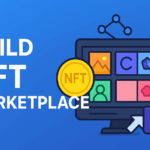The cryptocurrency market continues its explosive growth, with daily trading volumes exceeding $2 trillion globally. For entrepreneurs and businesses seeking entry into this lucrative industry, white label crypto exchange software offers the most efficient and cost-effective solution.
What Is White Label Crypto Exchange Software?
White label crypto exchange software is a pre-built, fully functional trading platform that businesses can customize and rebrand under their own identity. Similar to private label products in retail, these solutions provide ready-to-deploy technology that eliminates the need to build complex infrastructure from scratch.
These platforms include essential features like order matching engines, wallet integration, security protocols, administrative dashboards, and user interfaces. This turnkey approach allows you to focus on business growth rather than solving technical challenges.
Core Benefits of White Label Solutions
Speed to Market
Building a custom exchange typically requires 12 to 18 months of development. White label solutions can be deployed in just 2 to 4 weeks, allowing you to capitalize on market opportunities immediately. In the fast-moving cryptocurrency industry, this timing advantage can determine your success.
Significant Cost Savings
Custom exchange development costs range from $500,000 to over $2 million. White label solutions reduce this investment to $15,000 to $150,000, making institutional-grade technology accessible to businesses with modest budgets. You get proven, battle-tested platforms at a fraction of custom development costs.
Proven Technology
White label platforms have processed billions in trading volume across thousands of users. You benefit from continuous improvements, bug fixes, and security enhancements developed through real-world operational experience. Rather than learning expensive lessons through trial and error, you deploy solutions that have already proven successful.
Essential Features to Look For
Advanced Trading Functionality
Quality white label software supports multiple trading pairs including crypto-to-crypto, crypto-to-fiat, and fiat-to-crypto transactions. Advanced order types like market orders, limit orders, stop-loss, and trailing stops give users the tools professional traders expect.
Robust Security Architecture
Security remains paramount in cryptocurrency exchanges. Your solution must include multi-signature wallets, cold storage for majority funds, two-factor authentication, and DDoS protection. End-to-end encryption for communications and data storage provides additional protection layers.
Compliance Integration
Most jurisdictions require KYC and AML procedures. Quality white label platforms include integrated identity verification systems, automated sanctions screening, and comprehensive audit trails for regulatory reporting. Customizable compliance workflows adapt to different jurisdictions, enabling global expansion.
Liquidity Management
Liquidity determines trading success. Look for platforms offering liquidity aggregation features that connect to multiple exchanges through APIs. Some providers offer market-making tools to bootstrap trading activity during your initial launch phase.
Mobile Applications
With mobile devices accounting for over 60% of trading activity, native iOS and Android applications are essential. These apps should provide full web platform functionality, push notifications for price alerts, and biometric authentication for enhanced security.
Choosing Your Development Partner
Technical Expertise
Select development teams with proven experience in blockchain development and exchange creation. Review portfolios, case studies, and client testimonials to assess capabilities. The team should demonstrate expertise across multiple blockchain protocols including Bitcoin, Ethereum, and emerging networks.
Customization Capabilities
While white label solutions offer pre-built functionality, your exchange needs unique branding and potentially custom features. Ensure your partner can modify user interfaces, integrate specific payment gateways, and add specialized trading features without compromising platform stability.
Support and Maintenance
Post-launch support is crucial for exchange success. Look for service level agreements guaranteeing uptime and response times for critical issues. Your provider should offer ongoing technical support, regular security updates, and feature enhancements.
Scalability Planning
Your exchange must grow with your business. The solution should handle increasing user numbers and trading volumes without performance degradation. Cloud-based infrastructure with auto-scaling capabilities provides flexibility as demand fluctuates.
Implementation Strategy
Successful launches require comprehensive testing across all platform components. Beta testing with real users identifies usability issues before public launch. Security audits from reputable firms build trust while identifying vulnerabilities.
Build liquidity before launch through partnerships with market makers and relationships with other exchanges for token listings. Digital marketing campaigns targeting cryptocurrency enthusiasts drive initial user growth, while referral programs incentivize existing users to bring friends.
Regulatory Considerations
Cryptocurrency regulation varies dramatically worldwide. The United States requires Money Services Business registration and state-level licenses. European operators must comply with MiCA regulation frameworks. Your white label solution must adapt to local requirements while maintaining operational consistency.
Budget 6 to 18 months for license acquisition in regulated markets. Work with legal experts specializing in fintech to navigate these complexities effectively.
Future-Proofing Your Exchange
Stay ahead of industry trends by monitoring developments in layer-2 scaling solutions, cross-chain interoperability, and decentralized finance innovations. Your white label provider should regularly update platforms with new features and blockchain integrations.
Consider future support for NFTs, staking features, and DeFi integrations. These additions differentiate your exchange in competitive markets while creating additional revenue streams beyond transaction fees.
Making Your Decision
White label crypto exchange software makes sense for most businesses entering the cryptocurrency trading market. The combination of reduced costs, faster deployment, proven technology, and ongoing support outweighs building proprietary systems from scratch.
Ready to launch your cryptocurrency exchange? Explore professional development services that combine white label efficiency with custom features tailored to your vision. With proper planning, the right development partner, and commitment to security and compliance, your exchange can capture market share in this dynamic industry.





















0 Comments